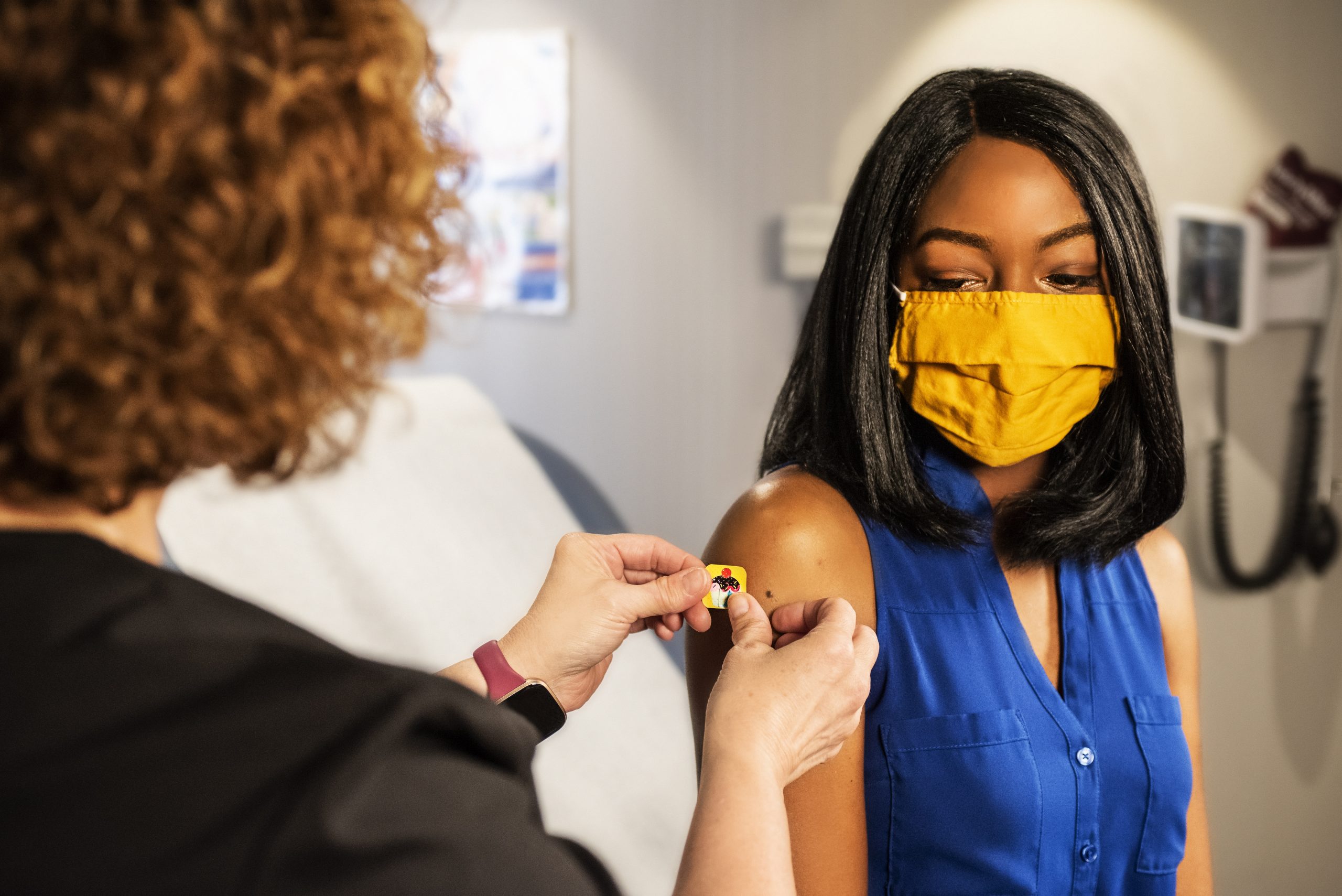
Lauren Dempsey, MS in Biomedicine and Law, RN, FISM News
[elfsight_social_share_buttons id=”1″]
On Aug. 30, the NIH announced that it will commission a $1.67 million yearlong study to investigate the impact of COVID-19 vaccines on reproductive health. This research will include about 500,000 participants and will follow “menstruating people” to gather data on menstrual cycle changes before and after each dose of the vaccine. Dr. Diana Bianchi, director of the Institute of Child Health and Human Development stated that the study will include adolescents, transgender, and nonbinary participants, but will exclude those that are on birth-control or hormone treatments as that may have an effect on periods.
Thousands of women have reported irregularities post-vaccination including irregular periods, hemorrhagic bleeding, clots, delayed or absent periods, pre-menopausal symptoms, and periods lasting for weeks at a time. Between Dec. 2020 and Aug. 2021 there have been 7,963 reports of menstrual irregularities post-vaccination according to the Vaccine Adverse Event Reporting System. A Harvard Pilgrim Health Care study from 2010 reported that only 1% of adverse events post-vaccination are reported. If this is the case, there are potentially thousands more women experiencing menstrual irregularities than have been reported. Yet, many physicians are quick to deny the experience of these women.
Initially the clinical trials did not collect information on changes in menstrual cycles, mainly because the study was focused on “critical safety issues’ and changes to your menstrual cycle is not really a life and death issue” explained Bianchi. These reports are considered anecdotal evidence where correlation does not always mean causation and more scientific studies should be done to determine the root cause of menstrual irregularities.
Periods can be an indicator of overall health and irregularities can be a signal for a hormonal imbalance, an endocrine disorder, infection, or uterine fibroids. Previous studies have suggested that there is a direct correlation with the immune system and reproductive system, and that vaccination may impact a woman’s menstrual cycle. One study suggests that administration of the HPV vaccine may correlate with premature ovarian insufficiency which is when the ovaries stop functioning normally before the age of 40.
Dr. Askshat Jain, a hematologist, explains “that inflammation, has a potential or potentially can modulate estrogen response, which could be the link between certain women having heavy periods after the vaccine.” In light of this, what are the potential impacts on fertility and the push to vaccinate women in pregnancy?
According to the CDC the risk of severe illness from COVID-19 during pregnancy is low, however there is an increased risk when compared to non-pregnant people. Important factors like pre-existing comorbidities, ethnicity, hypertension, diabetes, maternal age, and obesity has been linked to severe COVID-19 in pregnancy. The “CDC encourages all pregnant people or people who are thinking about becoming pregnant and those breastfeeding to get vaccinated to protect themselves from COVID-19,” said CDC Director Dr. Rochelle Walensky.
The ACOG recommends that pregnant and breastfeeding women receive the vaccination based on research that discovered SARS-CoV-2 antibodies that were present in umbilical cord blood and breastmilk. This data suggests that vaccination in pregnancy will provide protection once the baby is born because these antibodies correlate with immunity, but it is equally important that with a previous infection, the antibodies are also transferred to the baby. Conversely, the FDA has recommended against antibody testing as an indicator of immunity, especially after vaccination, due to inconsistent interpretation and the need for more research to be done.
